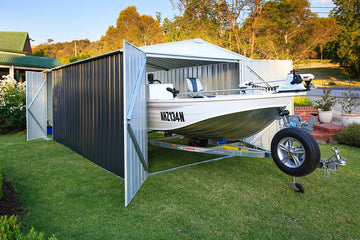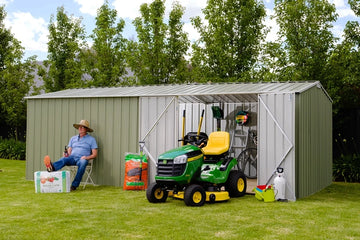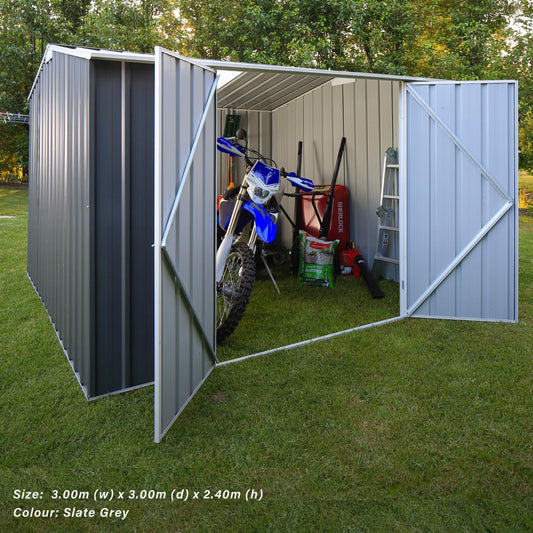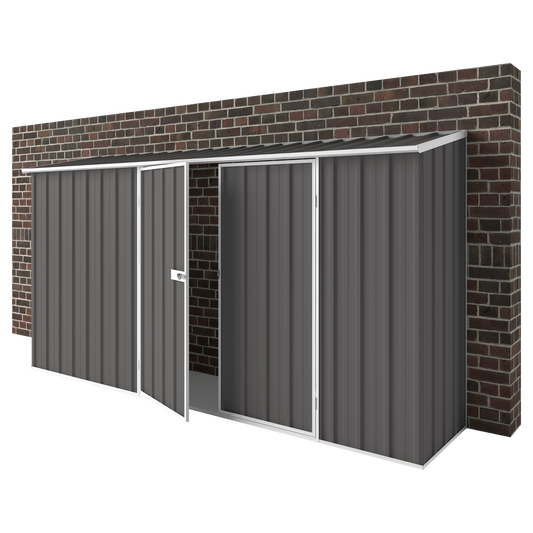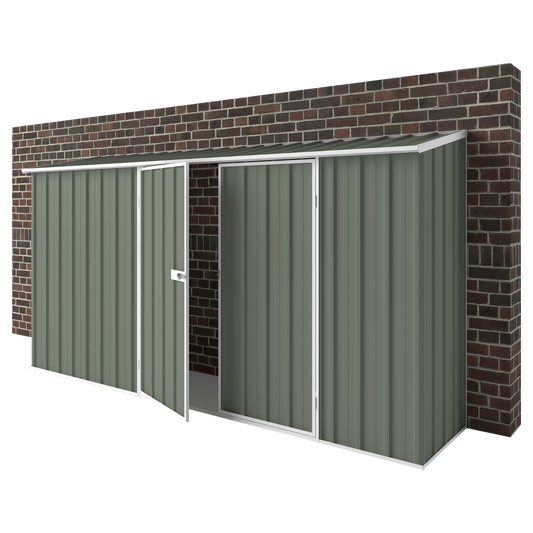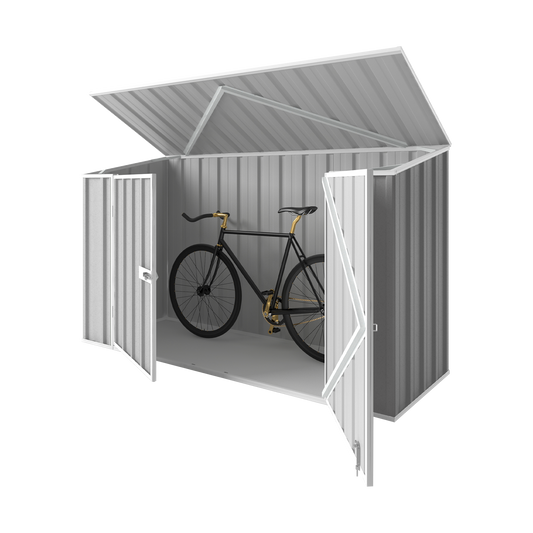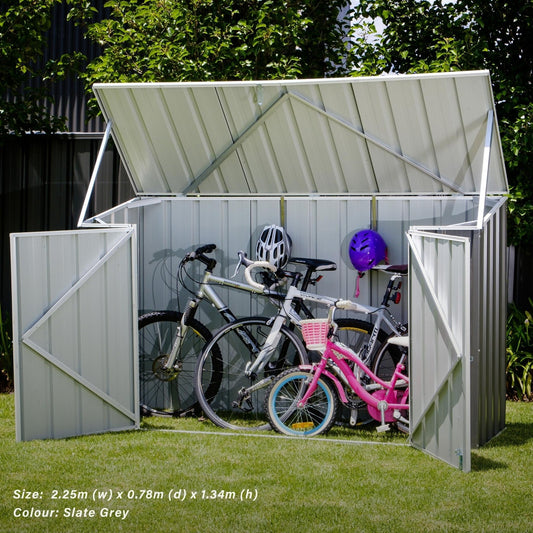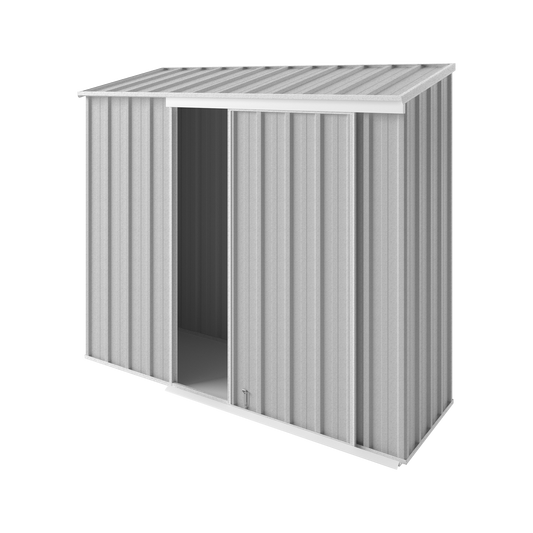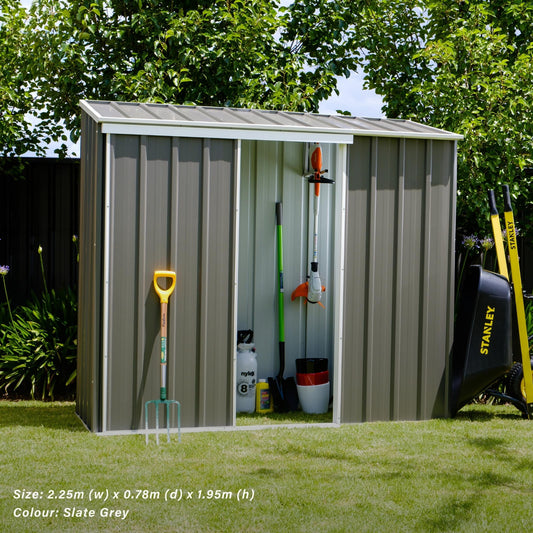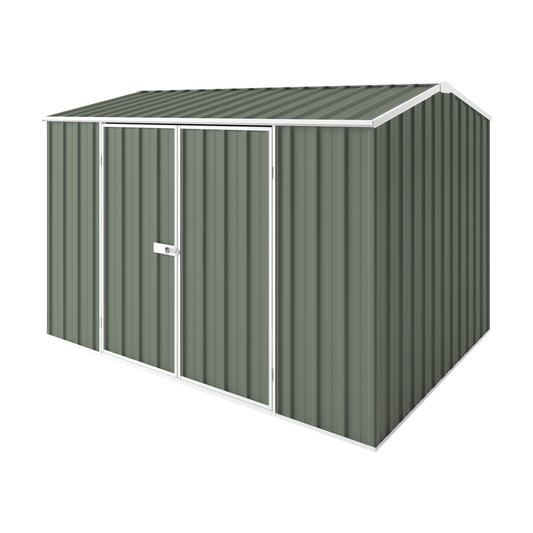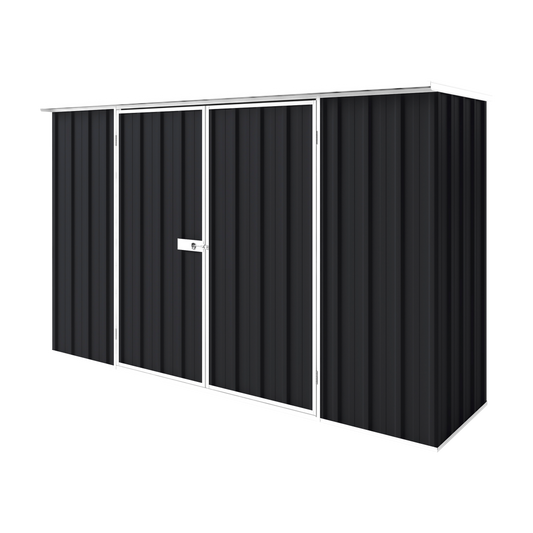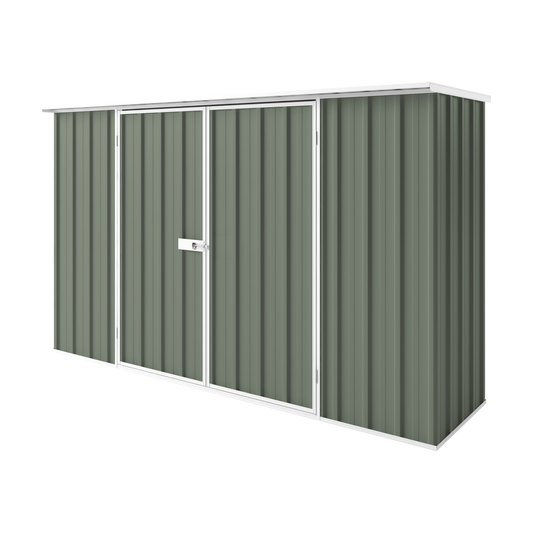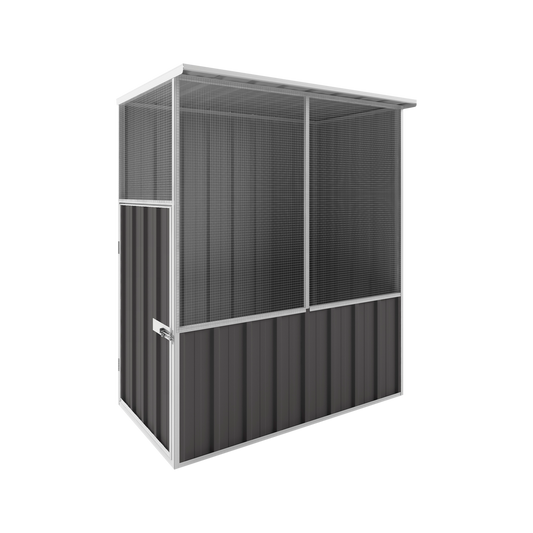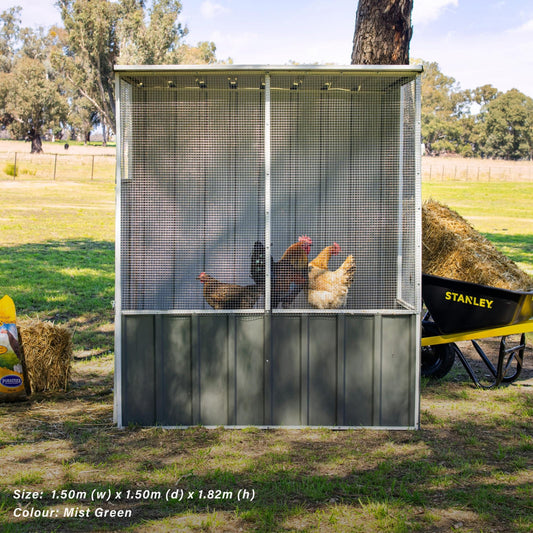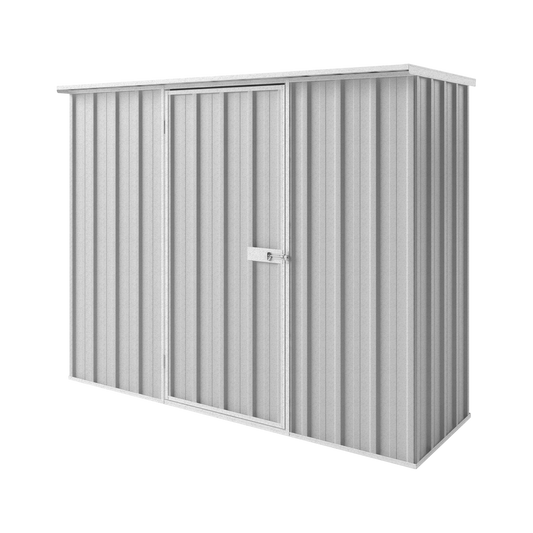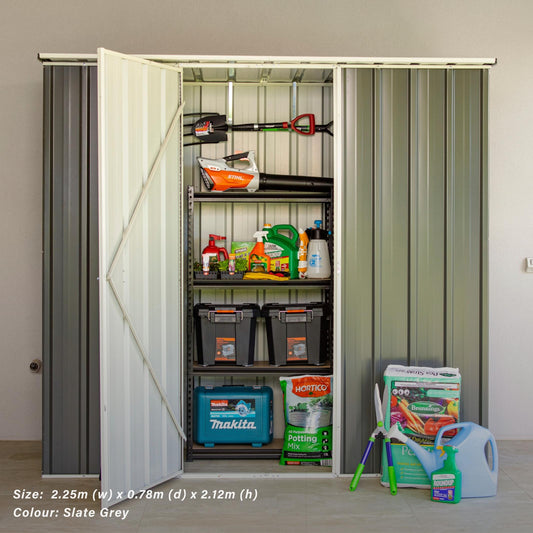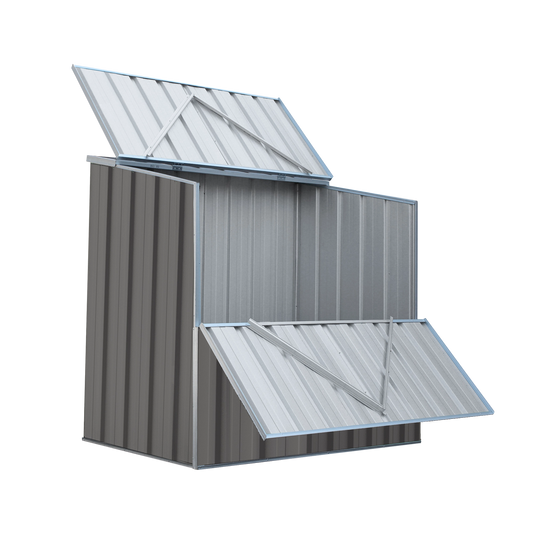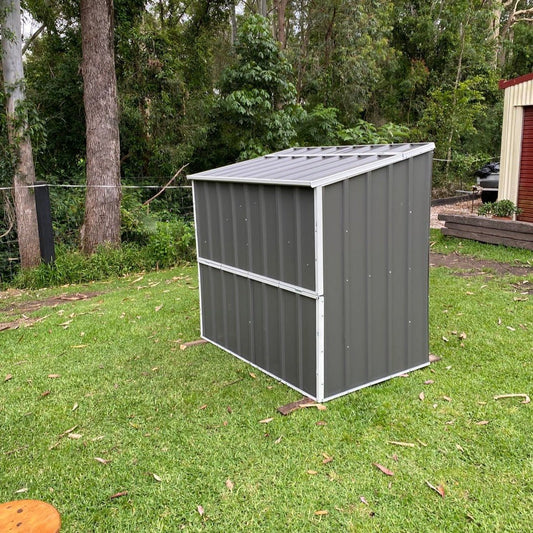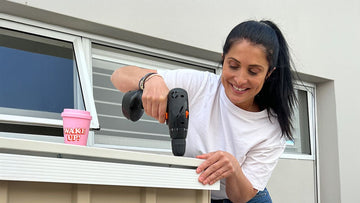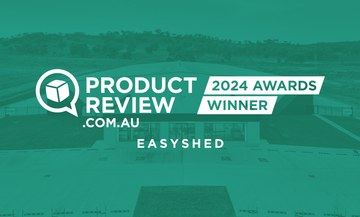It’s so exciting to look into your backyard and imagine a brand new shed! Maybe it’s going to be a workspace for your woodworking projects. Maybe it will house your beloved vintage car and act as a mechanic’s paradise. Or, maybe you want enough space to lead yoga sessions right in the middle of your backyard.
Whatever you envision for your future shed, one thing you’re probably wondering is how big you can go without needing a permit. Or, if you don’t meet those requirements, you might be wondering how you would go about getting a permit.
In this article, we’re going to talk about all things permits. When you need one. When you don’t. How you might keep your shed within the limits. Or, how to get a permit if you can’t.
All your questions answered in one place!
First of all, is there a general consensus?
According to the most recent laws, the majority of councils allow for up to 10 square metres before you need to apply for a permit. That means, you could purchase any of our sheds that are 3mX3m (or 3.75mX2.25m) or less and be all set to go with no permit.
Some councils have requirements about the shed height, building material, and placement in the yard. Some states also offer fast track permits for smaller structures like sheds, which is great news for future shed owners! We’ll mention a few of these special considerations in the next section.
Requirements by state
New South Wales
For NSW, here are the ways that your shed can be exempt from needing council approval (in other words, if these statements apply to your shed, you don’t need a permit!):
- Your shed is the only detached structure in the backyard
- Your shed is not a shipping container (no worries, here, EasyShed doesn’t sell shipping containers!)
- Your shed is no larger than 20 square metres if you live in a residential area
- If you live in a rural area (RU1, RU2, RU3, RU4 or RU5), your shed is no larger than 50 square metres
- Your shed is at least 900mm away from each boundary
- If your shed is raised off of the ground - lofted, for instance, - it is less than 3 metres from the ground
- Your shed doesn’t interfere with the fire safety of other buildings - it’s not blocking entrances, for instance
- Your shed isn’t made of fire-prone materials if you live in a fire-prone area
- Your shed is constructed of low-reflective material in residential areas
- The water runoff from your shed doesn’t have a negative impact on your neighbor’s property
If there was even one of these stipulations that you doesn’t describe your shed, you’ll have to start the process of getting council approval.
Queensland
There are relatively few exceptions in Queensland if you’re looking to purchase a shed. If your shed meets the following requirements, you do not need to apply for a permit:
- Your shed is less than 10 square metres
- Your shed doesn’t have any single wall longer than 5 metres
- Your shed is no taller than 2.4 metres high
- Your shed doesn’t have an average mean height of more than 2.1 metres
South Australia
You won’t need to apply for council approval if your shed:
- Will be used as an extension of the house instead of a separate home office or other use
- Is smaller than 15 square metres
- Has a width, or span, of less than 3m (that means that the largest EasyShed you can buy would be 3mX3m without a permit)
- It’s not raised higher than 2.5m off of ground level
- Is not located on heritage land (either local or state)
- Is located on the property so that it is not closer to the street than the main building
- It is more than 900mm away from a boundary with a second street (on a corner property, for instance)
- It is more than 6m away from a corner boundary
As you can see, these requirements are not quite as straightforward as some of the other states, so it’s a good idea to go to the council directly, just to make sure.
Tasmania
Here are the guidelines for a shed that doesn’t need council approval:
- The shed is built in the backyard
- The land is not Heritage listed
- The shed is less than 9 square metres, with no one wall longer than 3 metres
- The pitch of the roof is less than 25 degrees
- If the shed is raised off of the ground, the highest part cannot be higher than 2.4 metres off the ground
Victoria
If your shed in Victoria meets these guidelines, you don’t need a permit!
- Your shed is no larger than 10 square metres
- Your shed is less than 3 metres in height
- If your shed is within 1 metre of a boundary, the height cannot exceed 2.4 metres
- The shed doesn’t extend beyond the front wall of the main building
- Constructed of a material other than masonry (With an EasyShed, you’re in the clear!)
Western Australia
Here are the guidelines for a shed that doesn’t need a permit:
- It’s no taller than 2.4 metres
- It does not extend beyond the front setback line
- The shed complies with fire safety requirements of the main building
- It is not raised above 500mm from the ground
- The shed is not within 900mm of any other structure
- The shed is securely anchored as a defense against strong winds
- The shed is structurally strong
- There is no visual interference with sight lines for vehicles
- The shed is not in a conservation precinct
Western Australia council also strongly recommends that you talk to your neighbours about potentially installing a garden shed in the backyard.
ACT
The ACT has similar requirements as the previous examples, but there are a couple of extra considerations about block size to that you’ll need to be aware of. Let’s cover those first:
- If your block size is 600 square metres or larger, your shed can have a maximum square metreage of 50 square metres
- If your block size is between 500 and 600 square metres, your shed must be 25 square metres or smaller
- If your block size is less than 500 square metres, your shed must be 10 square metres or smaller
In addition to these requirements,in order to avoid the need of a permit, the shed must:
- Be behind the building line (and, if it is larger than 10 square metres, it also needs to be 15 metres back from the front boundary)
- Not be raised more than 3 metres above the ground level
There are also special considerations if you’ll be building two exempt structures (like a garden shed) within 1.5 metres of a side boundary or back boundary, so make sure to check with the council if you’re part of this special category.
Northern Territory
Our last stop is Northern Territory! Here are the requirements for a non-permit shed:
Option One (Residential Area): For a shed in which the roof area doesn’t exceed 12 square metres, you’ll need the height to be less than 2.1 metres. This shed has to be at least 40 metres away from all boundaries.
Option Two (Rural Area): For a shed with a roof area of between 12 and 30 square metres, the height should be under 2.4 metres and the shed must be over 70 metres away from all boundaries.
Creative solutions for a no-permit option
As you browse your shed options, you might be torn between the different sizes that can fit on your property. Maybe you feel that you need the extra space but you really don’t want to go through the process of getting approval.
Here are a couple of ways that you can maximize the space in your shed so that you can minimize the floor plan:
- Use hanging hooks for garden equipment. When your equipment is up off of the floor, you’ll be able to fit more in your shed and opt for a smaller option.
- Invest in storage shelves. This is going to allow you to stack boxes and bins so that you can use all of the vertical space in your shed.
- Downsize and organize. If you’re going to be using your shed for storage, this is a great opportunity to jump on the bandwagon and start getting rid of things you don’t want or need anymore. You just might find that you don’t need as much a space once you’ve said goodbye to a few things. The second part of this is organization. Lay out all of your items and see how they might fight nicely together when you pack them. Remember to use plastic storage bins to make stacking easier and protect the items that you put in the shed.
We want to emphasize that you should absolutely not go ahead with purchasing a larger shed if you don’t intend to apply for the proper approval. You may think that it will be easy to get away with, especially if your shed is only slightly over the requirements, but it can cause a major headache for you in the future. Just think of the mess you could have on your hands if your shed becomes a safety hazard because you didn’t follow protocol. So, give yourself the peace of mind and get the approval if you want a larger shed.
Which brings us to our next point...
Going about getting a permit
The idea of going to council to get approval may seem intimidating or a hassle, but it’s not as complicated as you think. Every region will be slightly different, so it’s important that you ask for more information from your council, but in general, the council has pretty straightforward requests. Here are a couple of the things that they might ask you for:
- Shed design. EasySheds consist of simple designs that shouldn’t raise any questions when it comes to approval.
- Statement of what the shed will be used for. The council will want to know if your shed will be used for personal storage use or as a home office with full plumbing and electricity. Whatever you’re going to be using the shed for, be honest.
- Backyard layout plans. The council will want to make sure that the shed isn’t going to be in the way of safety exits, so you’ll likely have to provide a layout of your backyard with the proposed location of the shed.
- An application. Some regions offer a fast-tracked shed approval application to make sure that your request doesn’t get lost with the other big building projects.
Again, it’s very important that you check in with your local council before you start gathering these documents. Not all of these will be required in every state, and some states may require extra documentation. So, ask first.
A few extra considerations before we let you go
In addition to possibly needing a building permit from council for your shed, things might get a little bit more complicated if you’re planning on installing electricity or plumbing. Even installing a solar panel on the roof of your shed may bring up an issue if you haven’t gotten the proper approval.
So, when in doubt, make sure that you check in with council. Even if you didn’t have to get approval when you first bought the shed, any alterations, such as adding plumbing and electricity, may change things.
It’s time to start searching for your new shed!
Now that you have a good idea of what will be required from you when it comes to installing a shed in your backyard, you can move forward in the selection process! EasyShed offers so many different shed sizes, configurations, and roof styles , that you’ll easily be able to find a shed that meets your local requirements.
And if you still have some questions about permits, feel free to give us a call! We’re happy to help you navigate the process as best we can.
As always, we love sharing our information with all current and potential shed owners, so send this to anyone who could use a heads up about building a shed without a permit!



